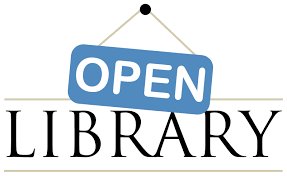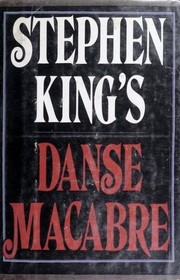Open Library
Open Library is a website that serves as a digital library and resource for book enthusiasts and readers. Its primary goal is to provide free and open access to a vast collection of books, both in digital and physical formats.

A little about the site:
-
Online Catalog: OpenLibrary has a comprehensive online catalog of books. It's like a digital version of a traditional library catalog, where you can search for books by title, author, subject, or ISBN. This catalog contains information about millions of books, including details about their authors, publication dates, and cover images.
-
E-books: OpenLibrary offers access to a growing collection of over a million e-books that you can read for free. These e-books cover a wide range of topics and genres. You can borrow these e-books and read them on your computer or compatible e-readers. While some books are available instantly, others may have limited copies, so you might need to join a waitlist.
-
Physical Books: In addition to e-books, OpenLibrary provides information about physical books. If a book is part of their catalog, you can use the site to locate it in a library near you, or you can borrow a physical copy through participating libraries.
-
Community Contributions: OpenLibrary encourages users to contribute to its catalog. You can help by adding information about books, authors, or cover images, making it a collaborative project that keeps growing and improving.
-
Account and Borrowing: To borrow e-books or add books to your reading list, you need to create a free account. This account allows you to check out e-books and manage your reading history.
-
Public Domain: Many older books whose copyrights have expired are available for free on OpenLibrary. This is a valuable resource for those interested in classic literature and historical texts.
-
Educational and Research: OpenLibrary is a useful tool for students, researchers, and anyone looking for information. You can find academic texts, reference books, and research materials within its vast catalog.
-
Open Access: OpenLibrary is part of the open access movement, which promotes the idea that information and knowledge should be freely available to everyone. It aligns with the principles of openness and sharing.
-
Accessibility: OpenLibrary is designed to be accessible to people with disabilities. It offers features like adjustable text sizes and text-to-speech capabilities to accommodate a wide range of users.
Open Library has a fascinating history and origins that tie into the larger movement of promoting open access to information and literature. Here's a more detailed look at how it all began:
Origins and Founding: OpenLibrary.org was founded in 2006 as a project of the Internet Archive, a non-profit organization dedicated to archiving and preserving digital content. The Internet Archive, established in 1996 by Brewster Kahle, has been instrumental in capturing and archiving the vast expanse of the internet, from websites to multimedia content, in an effort to make knowledge and culture accessible for future generations.
Mission: The primary mission of OpenLibrary is to provide universal access to knowledge. The founders envisioned a digital library that would be open to anyone with an internet connection, allowing users to access, borrow, and contribute to a massive collection of books. This aligns with the broader philosophy of open access, which aims to remove barriers to knowledge and promote the free exchange of information.
Growth and Partnerships: OpenLibrary has steadily grown over the years, thanks to partnerships with libraries, organizations, and volunteers worldwide. These partners have contributed to the project by adding books, improving metadata, and expanding its collection. The project has also received support from institutions that share its commitment to open access and the preservation of written works.
Books Scanning Initiative: One of the notable aspects of OpenLibrary's history is its involvement in book scanning initiatives. The Internet Archive, closely associated with OpenLibrary, has been actively digitizing physical books to make them available as e-books. This massive digitization effort, known as the Open Content Alliance, aimed to scan and share books that were in the public domain, as well as those under copyright with the permission of publishers and authors.
Community and User Contributions: OpenLibrary encourages users to actively participate in the growth of its catalog. Users can create accounts, borrow books, and contribute by adding information about books, authors, or cover images. This collaborative approach has helped expand the database and improve the quality of metadata.
Accessibility and Inclusivity: OpenLibrary has also focused on making its platform accessible to as many people as possible. It offers features like adjustable text sizes, which are beneficial for people with visual impairments, and text-to-speech capabilities, enhancing the platform's inclusivity.
In summary, Open Library is a valuable online resource for discovering, borrowing, and exploring books and other reading materials. It's a great platform for book lovers, researchers, and anyone who seeks access to a wealth of knowledge and literature. Whether you're looking for a classic novel, a research paper, or simply want to explore new books, OpenLibrary.org is a free and open platform to help you do just that.
What's Your Reaction?



















